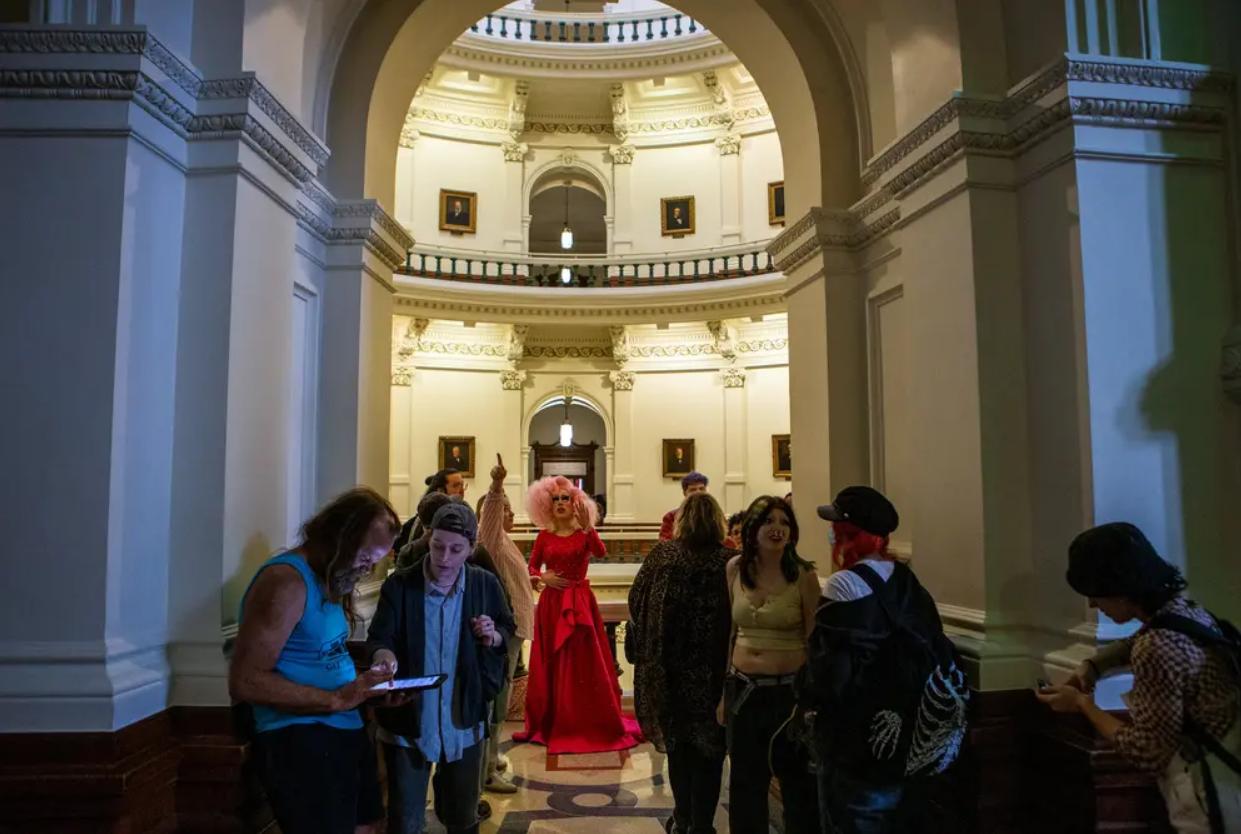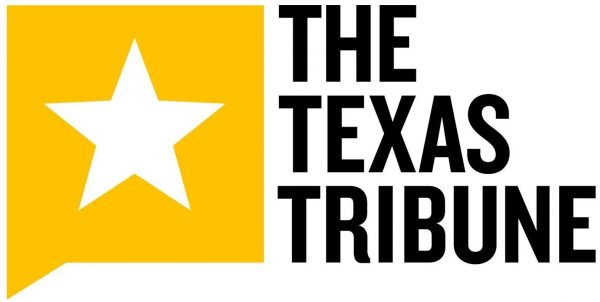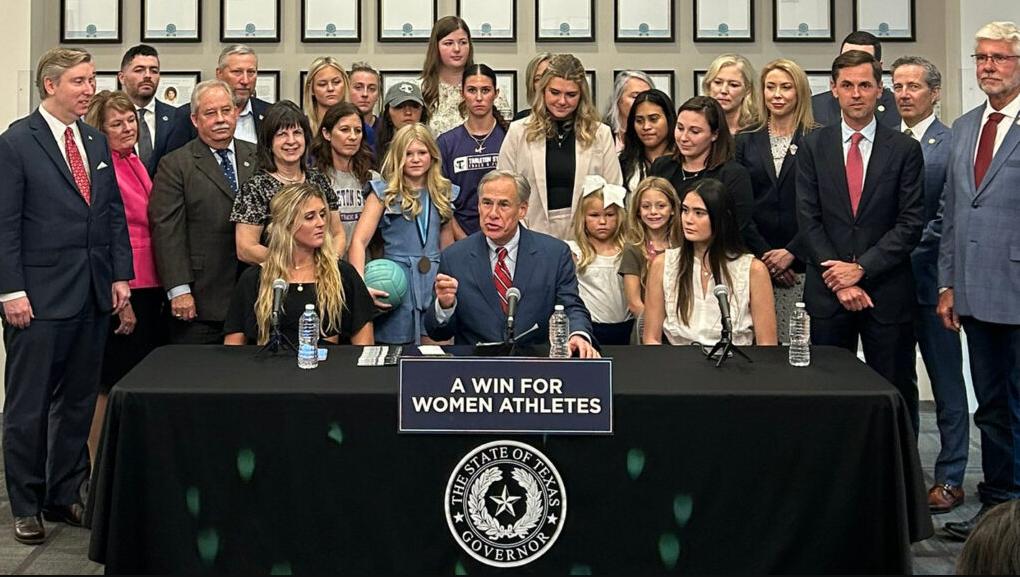Texas
LGBTQ activists sue to block Texas’ new drag law
Senate Bill 12 to take effect Sept. 1


By Rebecca Schneid | LGBTQ Texans and advocates filed a federal lawsuit Wednesday to block a new state law that criminalizes some drag shows — and other performances — if they occur in front of children.
Senate Bill 12, which goes into effect on Sept. 1, originally sought to classify all drag shows as sexual performances, but it was dramatically altered throughout the regular legislative session. The version the Legislature eventually approved criminalizes performers that put on sexually explicit shows in front of children as well as any businesses that host those shows.
But it’s how the law defines sexually explicit behavior that spurred the lawsuit.
The complaint argues that SB 12’s language is overly broad, allowing for too much discretion for police, prosecutors and municipalities to decide what is or is not illegal.
“In its zeal to target drag, the Legislature passed a bill so yawning in scope that it criminalizes and restricts an enormous swath of constitutionally protected activity,” says the lawsuit, which was filed by the American Civil Liberties Union of Texas. “The state has threatened the livelihood and free expression of many Texans.”
Under the law, business owners would face a $10,000 fine for hosting sexually explicit performances in which someone is nude or appeals to the “prurient interest in sex.” Performers caught violating the proposed restriction could be slapped with a Class A misdemeanor, which carries a maximum penalty of a year in jail and a $4,000 fine.
The Attorney General’s office, whose acting leader is one of the defendants in the suit, did not immediately respond to a request for comment Thursday. State Sen. Bryan Hughes, who authored SB 12, and several co-authors of the legislation also did not immediately respond to requests for comment.
The plaintiffs, represented by the ACLU of Texas, argue that SB 12 violates the First and 14th Amendments because the law “discriminates against the content and viewpoints of performances and imposes prior restraint on free expression.”
According to the Dallas Morning News, attorneys who have reviewed the bill say it could end up criminalizing behavior common at everything from Pride parades to bachelorette parties.
The bill classifies the use of “accessories or prosthetics that exaggerate male or female sexual characteristics,” accompanied with sexual gesticulations as sexual conduct.
Brigitte Bandit, an Austin-based drag performer and one of the plaintiffs, criticized the addition of “accessories or prosthetics” to the bill.
“Is me wearing a padded bra going to be [considered] enhancing sexual features?” Bandit asked lawmakers earlier this year. “It’s still really vague but it’s still geared to try to target drag performance, which is what this bill has been trying to do this entire time, right?”
In a press release attached to the complaint, Bandit stated that they will not allow the drag community to be “used as a scapegoat or a distraction by politicians.”
Other plaintiffs are the Woodlands Pride, Abilene PRIDE Alliance, Extragrams LLC and 360 Queen Entertainment LLC.
In addition to the acting attorney general, they are suing the district attorneys of Montgomery and Bexar Counties, the county attorney of Travis County, the City of Abilene, Woodlands Township, Montgomery County and Taylor County.
GLAAD, Equality Texas and the Transgender Education Network of Texas released a statement criticizing the law and portraying it as an attempt to unconstitutionally restrict the lives of LGBTQ Texans.
“The goal of this law is to chip away at our freedoms and eventually erase queer and trans existence from the public sphere,” said Andrea Segovia, senior field and policy advisor for TENT. “The plaintiffs of this case demonstrate true Texas values by standing strong for queer and trans rights. We’re supporting them every step along the way.”
***********************************************************************************
Editor’s note: More than 200 speakers are now confirmed for the 2023 Texas Tribune Festival in downtown Austin from Sept. 21-23. Each year, the Festival engages, challenges and surprises attendees with unexpected talent mashups, must-see interviews and more, curated by the award-winning journalists at The Texas Tribune. See the lineup and get tickets today.
The preceding article was previously published by The Texas Tribune and is republished by permission.
The Texas Tribune is a nonprofit, nonpartisan media organization that informs Texans — and engages with them — about public policy, politics, government and statewide issues. Disclosure: The ACLU of Texas has been a financial supporter of The Texas Tribune, a nonprofit, nonpartisan news organization that is funded in part by donations from members, foundations and corporate sponsors. Financial supporters play no role in the Tribune’s journalism. Find a complete list of them here.
**********************
Quality journalism doesn’t come free
Perhaps it goes without saying — but producing quality journalism isn’t cheap. At a time when newsroom resources and revenue across the country are declining, The Texas Tribune remains committed to sustaining our mission: Creating a more engaged and informed Texas with every story we cover, every event we convene and every newsletter we send. As a nonprofit newsroom, we rely on members to help keep our stories free and our events open to the public. Do you value our journalism? Show us with your support.
Donation Link Here: (Link)
Texas
Texas Supreme Court rules judges can refuse to marry same-sex couples
Decision published on Oct. 24.

Texas judges will now be permitted to refuse to officiate same-sex weddings based on their “sincerely held religious beliefs,” following a ruling issued Oct. 24 by the Texas Supreme Court.
The state’s highest court — composed entirely of Republican justices — determined that justices of the peace who decline to marry LGBTQ couples are not violating judicial impartiality rules and therefore cannot be sanctioned for doing so.
In its decision, the court approved an official comment to the Texas Code of Judicial Conduct clarifying that judges may opt out of performing weddings that conflict with their personal religious convictions. This clarification appears to directly conflict with existing provisions that prohibit judges from showing bias or prejudice toward individuals based on characteristics such as race, religion, or sexual orientation.
“It is not a violation of these canons for a judge to publicly refrain from performing a wedding ceremony based upon a sincerely held religious belief,” the court’s comment states.
The original code explicitly bars judges from showing favoritism or discrimination, declaring that they must not “manifest bias or prejudice, including but not limited to bias or prejudice based upon race, sex, religion, national origin, disability, age, sexual orientation, or socioeconomic status.”
The case traces back to McLennan County Justice of the Peace Dianne Hensley, who was publicly reprimanded in 2019 after refusing to marry same-sex couples while continuing to perform ceremonies for heterosexual ones, the Texan reported.
The State Commission on Judicial Conduct found that her actions cast doubt on her ability to act impartially, but Hensley has spent the past six years challenging that reprimand in court, arguing that she was punished for adhering to her Christian beliefs.
In a statement responding to the Oct. 24 ruling, Texas House LGBTQ Caucus Chair Jessica González expressed disappointment with the decision.
“The Texas House LGBTQ Caucus is disappointed, but not surprised, to learn that the Texas Supreme Court is not willing to stand up for the rights of LGBTQIA+ Texans,” she said. “Our right to marriage should never depend on someone else’s religious beliefs. This change in the Judicial Conduct Code will only further erode civil rights in Texas.”
The Texas Supreme Court is also currently reviewing a related matter referred by the 5th U.S. Court of Appeals. That case involves another judge, Keith Umphress, who similarly refused to perform same-sex weddings for religious reasons. The 5th Circuit has asked the Texas justices to clarify whether the state’s judicial conduct code actually forbids judges from publicly declining to officiate same-sex weddings while continuing to perform ceremonies for straight couples — a question that could further define the boundaries between religious liberty and judicial impartiality in Texas.
Texas
Democrats block anti-trans legislation by breaking quorum in Texas
Lawmakers flee state to halt GOP-backed redistricting and anti-trans policies

As Texas House Democrats fled the state to prevent Republicans from gerrymandering Democratic-held districts to flip seats, they also blocked anti-transgender legislation from being considered simply by not showing up.
More than 50 House Democrats left Texas on Sunday in an attempt to pause—if not kill—recent Republican-proposed and Trump-encouraged measures making their way through the state House.
This move by Democrats is called “breaking quorum,” and means the Texas House has fewer than the required minimum number of representatives present to conduct business. In total, the Texas House has 150 seats. Republicans hold only 88 seats—less than the 100 required to meet quorum—pausing the legislative session.
The Democratic legislators traveled to Illinois and New York, two Democratic strongholds with outspoken governors vowing to protect them and prevent Republicans from gaining an unfair advantage in the middle of the legislative calendar—at Trump’s behest.
The major issue Texas Democrats are drawing attention to is the recent redistricting plan, which would flip five Democratic U.S. House of Representatives seats to Republican ones through the use of gerrymandering, or strategic manipulation of district boundaries. This gerrymandering would likely result in Republicans retaining control of the U.S. House in the 2026 midterms.
In addition to redistricting, Republicans have proposed Senate Bill 7 (SB7), also known as “The Trans Bathroom Ban.” This bill mandates that people use the bathroom in government buildings, schools, and women’s violence shelters that corresponds with their sex at birth, rather than their gender identity. The bill would also require incarcerated individuals to be placed in facilities that match their sex at birth.
Proponents of the bill, like Fran Rhodes, the president of True Texas Project—a hardline conservative group that opposes LGBTQ rights and immigration—argue that without SB7, “we put women and girls at risk.”
This proposed legislation has been denounced by Equality Texas, which says it would not only put trans women at risk, but also cis women, who would be subject to “invasive gender inspections.” They argue this would undermine the Republicans’ stated intent of the bill by subjecting women to unnecessary scrutiny rather than protecting them.
Multiple cis women have come out in opposition to the bill, including Wendy Davis, a lawyer and former member of the Texas State Senate, who called the bill “a solution without a problem.”
Davis continued, saying that “Our trans sisters deserve to be safe in the restroom, just like we deserve to be safe in the restroom.”
Additionally, some Black Texans have sounded the alarm on this bill, likening it to Jim Crow-era segregation legislation—but instead of skin color, it uses gender identity to discriminate.
As the clock runs out on this 30-day special session ending Aug. 19, there is a chance Republican Gov. Greg Abbott could extend the session, as it is within his power as governor.
Texas Democrats hope this will pressure Republicans to work with them to reach a compromise on both redistricting and killing the anti-trans bill.
Texas
Texas lawmaker introduces bill to criminalize identifying as transgender
Republican’s proposal unlikely to pass

Republican Texas state Rep. Tom Oliverson introduced a bill last week that would prohibit Texans from identifying themselves as transgender on official documents.
The legislation would classify as a state felony the act of “knowingly [making] a false or misleading verbal or written statement” by identifying one’s birth sex incorrectly to a governmental entity or to an employer.
While the bill, according to the Houston Chronicle, does not yet have any cosponsors and is considered unlikely to pass, the effort underscores conservative lawmakers’ turn toward increasingly extreme measures targeting the trans community, particularly in Texas.
For example, Republican state Rep. Brent Money introduced a bill last month that would have expanded the 2023 law barring gender affirming health treatments for minors by also prohibiting providers from offering puberty-suppressing medication, hormone therapy or surgeries to adults if the purpose is to affirm their gender identity.
Equality Texas reports that the state legislature has seen more than 170 bills targeting the LGBTQ community so far this year.
Oliverson in 2024 unsuccessfully challenged the chamber’s Republican speaker, Dade Phelan.




















